

Vitamins increase the intensity of physiological processes, protect against the harmful effects of the external environment, increase the body's resistance to infections and promote recovery. We offer a complete (but brief) guide to vitamins that will help you become healthier.
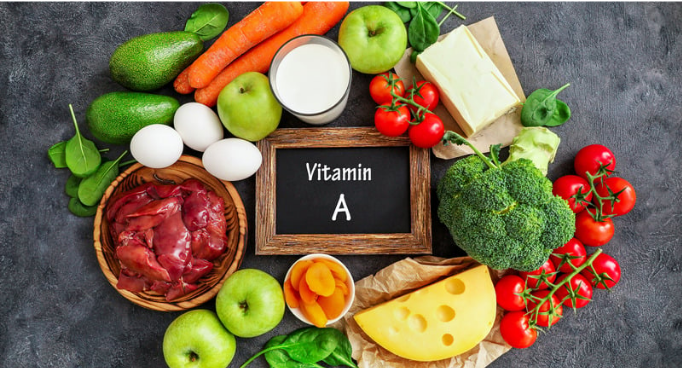
Vitamin A (retinol)
It enters the body from foods, and can also be synthesized by our body independently, converting beta-carotene contained in plant products.
Vitamin A is needed for:
– vision (supports conjunctiva and cornea),
– growth and development of many cells in the body,
– normal development of mucous membranes,
– regulation of antioxidant processes,
– ensuring childbearing function.
An overabundance of vitamin A can lead to abnormalities in fetal development, a decrease in the density of the mineral structure of bones and liver damage. But this is only if you take supplements in addition to the diet. It is impossible to get a toxic dose of vitamin A with food. The safe daily dose of this substance is 3 mg.
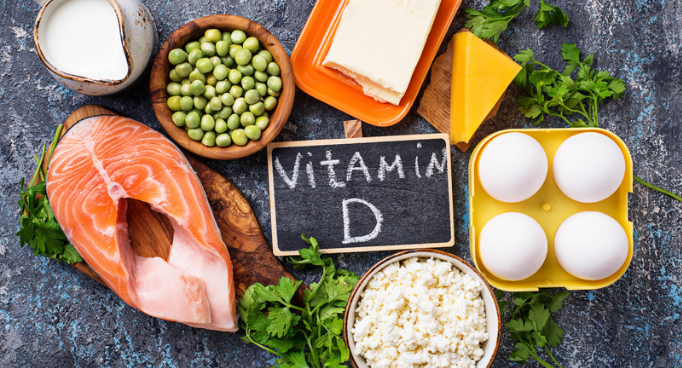
Vitamin D (cholecalciferol)
It is also called "solar" because it is formed under the influence of ultraviolet sunlight. The amount of vitamin produced is influenced by many factors: the surface area of the skin affected by the sun, the time of year, latitude, skin pigmentation, age.
The Benefits of Vitamin D:
– promotes the absorption of calcium and phosphorus,
– necessary for the development of bones and teeth,
– useful for blood clotting and maintenance of cardiac activity,
– reduces the risk of infection and diabetes.
– participates in the work of the musculoskeletal system.
With vitamin D deficiency, rickets can develop in children, and vitamin deficiency in adults contributes to osteomalacia (softening of bones) and osteoporosis (reduced bone density).
A large amount of vitamin D in bioactive supplements can lead to an increase in blood calcium levels and kidney failure. It is almost impossible to get an overabundance of vitamin D with food if you do not consume fish oil too much.
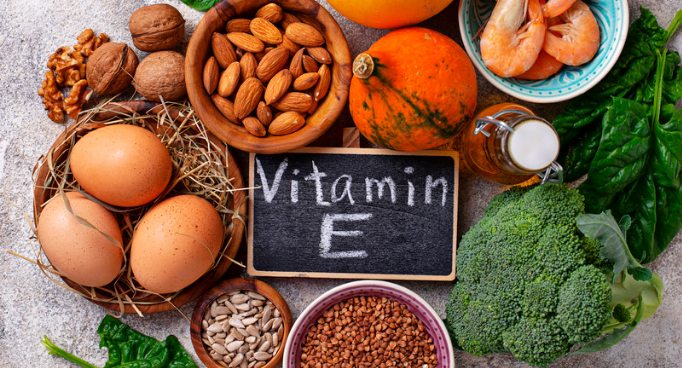
Vitamin E (alpha-tocopherol)
The lack of this nutrient in the body causes neuropathy (damage to peripheral nerves) and hemolytic anemia (a form of anemia caused by the breakdown of red blood cells).
Vitamin E is essential:
– to slow down the aging process of cells,
– to maintain normal hemoglobin levels,
– to strengthen the walls of capillaries,
– to protect blood cells, which helps to improve the supply of oxygen to the body and the overall protective function,
– for blood clotting, myocardial function, nervous tissue and immunity,
– to maintain childbearing function.
Usually, vitamin E deficiency is not observed in normal, healthy people. The deficiency can only be caused by insufficient fat absorption or genetic problems.
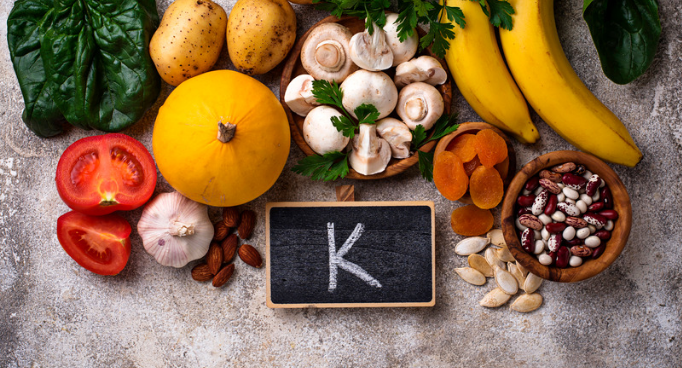
Vitamin K
His main job is blood clotting, which means he is important for wound healing. Vitamin K is also involved in protein synthesis and strengthens bones and body tissues.
The total reserves of this vitamin in the body are small. If you get too little of this substance with food, its reserves in the liver may run out altogether. With vitamin K deficiency in newborns and those who take blood-thinning drugs, blood clotting disorders may occur: bruises and bleeding easily appear.
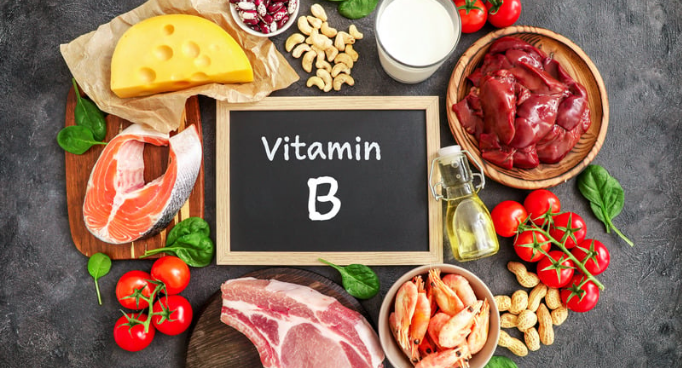
B vitamins
The main function of B vitamins is to control cellular metabolism and regulate the activity of the nervous system. These vitamins do not accumulate in the body, so they must be consumed constantly.
Benefit:
– necessary for cell renewal,
– support immunity,
– important for the work of the stomach and intestines,
– participate in the regulation of blood sugar levels, preventing the occurrence of diabetes,
– prescribed for neurological and mental disorders, in particular, with prolonged depression, neuroses, apathy,
– recommended for anemia.
Today, eight substances belong to this group, each of which has its own name and serial number:
– B1 (thiamine). Releases energy from fats, carbohydrates, and proteins.
– B2 (riboflavin). It is necessary for the health of the eyes, skin and mucous membranes, participates in all types of metabolic reactions.
– B3 (niacin, vitamin P, vitamin PP). The main function is the synthesis of fats and proteins, actively participates in the processes of metabolism.
– B5 (pantothenic acid). Takes an active part in the processes of antibody synthesis, accelerates tissue regeneration. It is synthesized in a small amount by the body.
– Vitamin B6 (pyridoxine). Participates in the formation of hemoglobin, is necessary for carbohydrate metabolism, regulates the activity of the nervous system, participates in the production of red blood cells and antibodies.
– Vitamin B7 (biotin). Participates in the release of energy from compounds containing calories. It is produced by the intestines (healthy) in sufficient quantities.
– Vitamin B9 (folic acid). Responsible for the formation of nucleic acids, leukocytes and erythrocytes, necessary for growth and immunity. In pregnant women, it promotes fetal development.
– Vitamin B12 (cobalamin). It is necessary for the formation of red blood cells, is responsible for the development and functioning of the nervous system.
It may seem that these vitamins have similar functions, but in fact each of them is irreplaceable and has unique properties. It is believed that a complex combination of vitamins B is more useful than taking each of them separately. Our food is most rich in vitamins of this group, however, nervous shocks, monotonous nutrition, digestive diseases, pregnancy and lactation lead to their deficiency in the body.
The main signs of vitamin B deficiency:
– itching and dryness of the skin,
– the appearance of rash and premature wrinkles,
– hair loss
– disruption of the nervous system (insomnia, irritability, nervous breakdowns),
– lack of appetite,
– inability to concentrate.
Chronic vitamin B deficiency leads to an increase in cholesterol and sugar, the development of anemia, neuropsychiatric diseases, physical development slows down in children and adolescents. Hypovitaminosis in pregnant women threatens miscarriage, stillbirth, severe fetal malformations.
Categories of people for whom the use of pharmacy vitamin B is especially important: athletes, pregnant women, elderly people, vegetarians, lovers of black tea and coffee (these products destroy vitamin B).
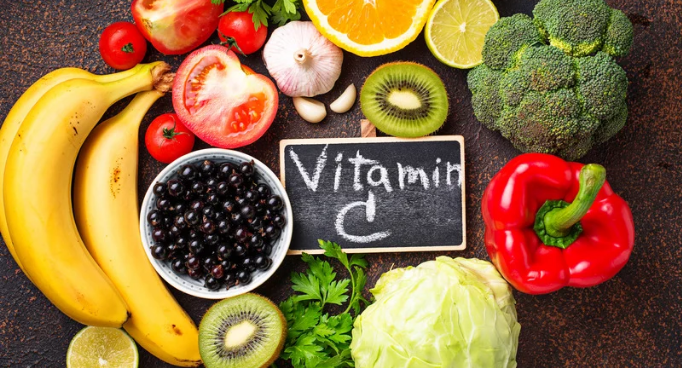
Vitamin C (ascorbic acid)
It is the main water-soluble antioxidant in blood and tissue cells. Our body is not able to synthesize or store vitamin C, so its reserves need to be constantly replenished.
Vitamin C is necessary for:
– development and work of the skin, gums, teeth, bones,
– normal wound healing,
– increasing the body's resistance, preventing spring fatigue and stress,
– transformation of folic acid entering the body into folates,
– normal brain function,
– control of the synthesis of steroid hormones, for the synthesis of bile acid from cholesterol and regulation of cholesterol levels in the blood,
– increased absorption of iron from food of plant origin.
Vitamin C deficiency manifests itself in a reduced ability of the body to resist oxidative processes, exhaustion and irritability. And its overabundance leads to digestive disorders and increased formation of kidney stones.
The main source of vitamins is not pills and supplements, but a balanced diet. Which foods contain the largest amount of certain substances, see the pictures below. Sometimes vitamins may not be enough due to diseases, metabolic features or genetics. In this case, the correct dose should be prescribed by a doctor to avoid hypervitaminosis with all side effects.
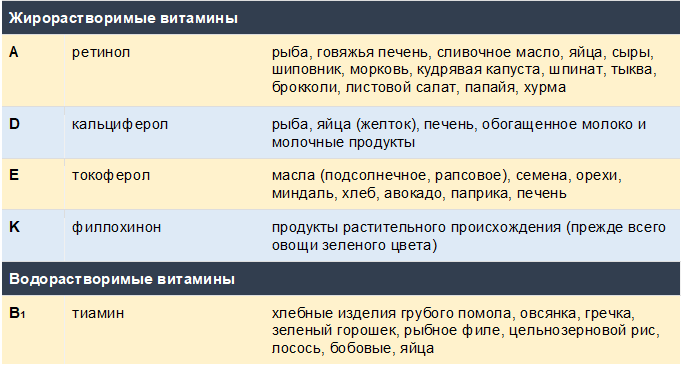
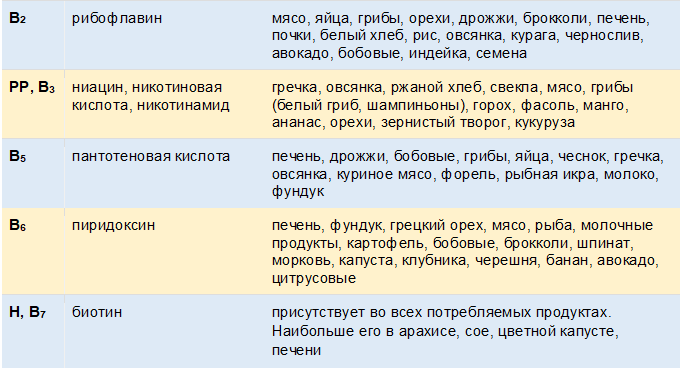
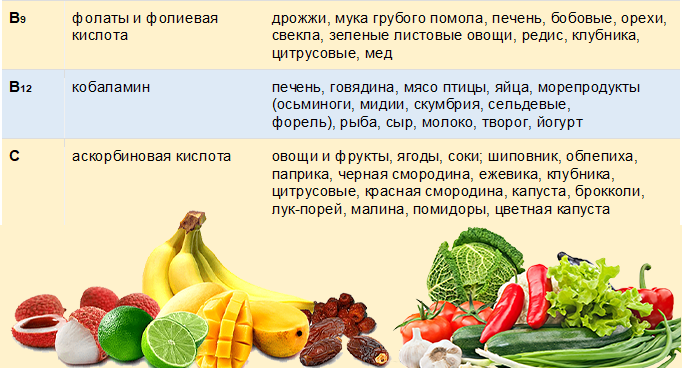
ORIENT